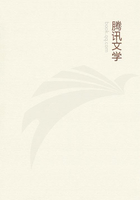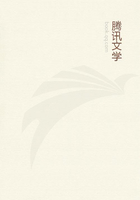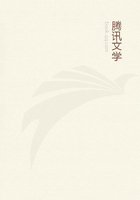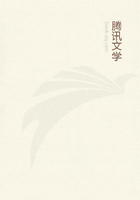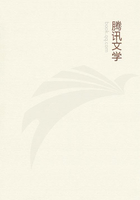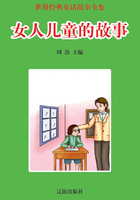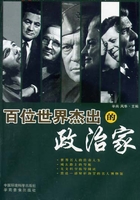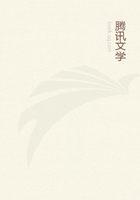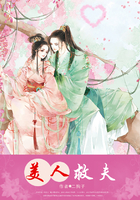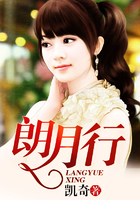Even small details of dress,such as the colour of a major-domo'sstockings,the pattern on a wife's handkerchief,the sleeve of ayoung soldier,and a fashionable woman's bonnets,become inShakespeare's hands points of actual dramatic importance,and bysome of them the action of the play in question is conditionedabsolutely.Many other dramatists have availed themselves ofcostume as a method of expressing directly to the audience thecharacter of a person on his entrance,though hardly so brilliantlyas Shakespeare has done in the case of the dandy Parolles,whosedress,by the way,only an archaeologist can understand;the fun ofa master and servant exchanging coats in presence of the audience,of shipwrecked sailors squabbling over the division of a lot offine clothes,and of a tinker dressed up like a duke while he is inhis cups,may be regarded as part of that great career whichcostume has always played in comedy from the time of Aristophanesdown to Mr.Gilbert;but nobody from the mere details of appareland adornment has ever drawn such irony of contrast,such immediateand tragic effect,such pity and such pathos,as Shakespearehimself.Armed cap-e-pie,the dead King stalks on the battlementsof Elsinore because all is not right with Denmark;Shylock's Jewishgaberdine is part of the stigma under which that wounded andembittered nature writhes;Arthur begging for his life can think ofno better plea than the handkerchief he had given Hubert -Have you the heart?when your head did but ache,I knit my handkerchief about your brows,
(The best I had,a princess wrought it me)
And I did never ask it you again;and Orlando's blood-stained napkin strikes the first sombre note inthat exquisite woodland idyll,and shows us the depth of feelingthat underlies Rosalind's fanciful wit and wilful jesting.
Last night 'twas on my arm;I kissed it;
I hope it be not gone to tell my lord.
That I kiss aught but he,says Imogen,jesting on the loss of the bracelet which was alreadyon its way to Rome to rob her of her husband's faith;the littlePrince passing to the Tower plays with the dagger in his uncle'sgirdle;Duncan sends a ring to Lady Macbeth on the night of his ownmurder,and the ring of Portia turns the tragedy of the merchantinto a wife's comedy.The great rebel York dies with a paper crownon his head;Hamlet's black suit is a kind of colour-motive in thepiece,like the mourning of the Chimene in the CID;and the climaxof Antony's speech is the production of Caesar's cloak:-I remember.
The first time ever Caesar put it on.
'Twas on a summer's evening,in his tent,
The day he overcame the Nervii:-
Look,in this place ran Cassius'dagger through:
See what a rent the envious Casca made:
Through this the well-beloved Brutus stabbed.
Kind souls,what,weep you when you but beholdOur Caesar's vesture wounded?
The flowers which Ophelia carries with her in her madness are aspathetic as the violets that blossom on a grave;the effect ofLear's wandering on the heath is intensified beyond words by hisfantastic attire;and when Cloten,stung by the taunt of thatsimile which his sister draws from her husband's raiment,arrayshimself in that husband's very garb to work upon her the deed ofshame,we feel that there is nothing in the whole of modern Frenchrealism,nothing even in THERESE RAQUIN,that masterpiece ofhorror,which for terrible and tragic significance can compare withthis strange scene in CYMBELINE.
In the actual dialogue also some of the most vivid passages arethose suggested by costume.
Rosalind's
Dost thou think,though I am caparisoned like a man,I have adoublet and hose in my disposition?
Constance's
Grief fills the place of my absent child,
Stuffs out his vacant garments with his form;and the quick sharp cry of Elizabeth -
Ah!cut my lace asunder!-
are only a few of the many examples one might quote.One of thefinest effects I have ever seen on the stage was Salvini,in thelast act of LEAR,tearing the plume from Kent's cap and applying itto Cordelia's lips when he came to the line,
This feather stirs;she lives!
Mr.Booth,whose Lear had many noble qualities of passion,plucked,I remember,some fur from his archaeologically-incorrect ermine forthe same business;but Salvini's was the finer effect of the two,as well as the truer.And those who saw Mr.Irving in the last actof RICHARD THE THIRD have not,I am sure,forgotten how much theagony and terror of his dream was intensified,by contrast,throughthe calm and quiet that preceded it,and the delivery of such linesas.
What,is my beaver easier than it was?
And all my armour laid into my tent?
Look that my staves be sound and not too heavy -lines which had a double meaning for the audience,remembering thelast words which Richard's mother called after him as he wasmarching to Bosworth:-
Therefore take with thee my most grievous curse,Which in the day of battle tire thee more
Than all the complete armour that thou wear'st.
As regards the resources which Shakespeare had at his disposal,itis to be remarked that,while he more than once complains of thesmallness of the stage on which he has to produce big historicalplays,and of the want of scenery which obliges him to cut out manyeffective open-air incidents,he always writes as a dramatist whohad at his disposal a most elaborate theatrical wardrobe,and whocould rely on the actors taking pains about their make-up.Evennow it is difficult to produce such a play as the COMEDY OF ERRORS;and to the picturesque accident of Miss Ellen Terry's brotherresembling herself we owe the opportunity of seeing TWELFTH NIGHTadequately performed.Indeed,to put any play of Shakespeare's onthe stage,absolutely as he himself wished it to be done,requiresthe services of a good property-man,a clever wig-maker,acostumier with a sense of colour and a knowledge of textures,amaster of the methods of making-up,a fencing-master,a dancing-master,and an artist to direct personally the whole production.

